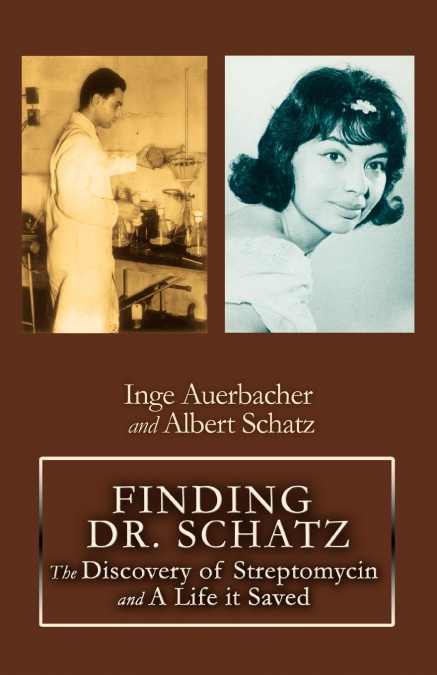
 Librería Perelló (Valencia)
Librería Perelló (Valencia)
 Librería Aciertas (Toledo)
Librería Aciertas (Toledo)
 El AlmaZen del Alquimista (Sevilla)
El AlmaZen del Alquimista (Sevilla)
 Librería Elías (Asturias)
Librería Elías (Asturias)
 Librería Kolima (Madrid)
Librería Kolima (Madrid)
 Donde los libros
Donde los libros
 Librería Proteo (Málaga)
Librería Proteo (Málaga)
As part of his doctoral research, Albert Schatz, a twenty-three-year-old graduate student at Rutgers University in New Brunswick, New Jersey, diligently worked alone in a basement laboratory to find an antibiotic to treat tuberculosis. In October of 1943, Schatz discovered streptomycin. But his professor, Selman Waksman, took the credit, relegating Schatz to the footnotes of history.Over fifty years later, German-born Inge Auerbacher read an article that named Schatz as co-discoverer of the drug. As a young Jewish girl during World War II, Auerbacher was a prisoner at Terezin concentration camp in Czechoslovakia. She was diagnosed with tuberculosis during her imprisonment and was able to receive the life-saving streptomycin after her immigration to America.Auerbacher contacted Schatz in 1997, compelled to offer him gratitude for the scientific research that saved her life. She learned of the controversy surrounding the discovery of streptomycin and Schatz’s ultimate recognition for his work. As a result of their friendship, they decided to co-author this book. Finding Dr. Schatz is their powerful true story-told in their own words-of a scientist who changed the world and a woman who lived because of it.